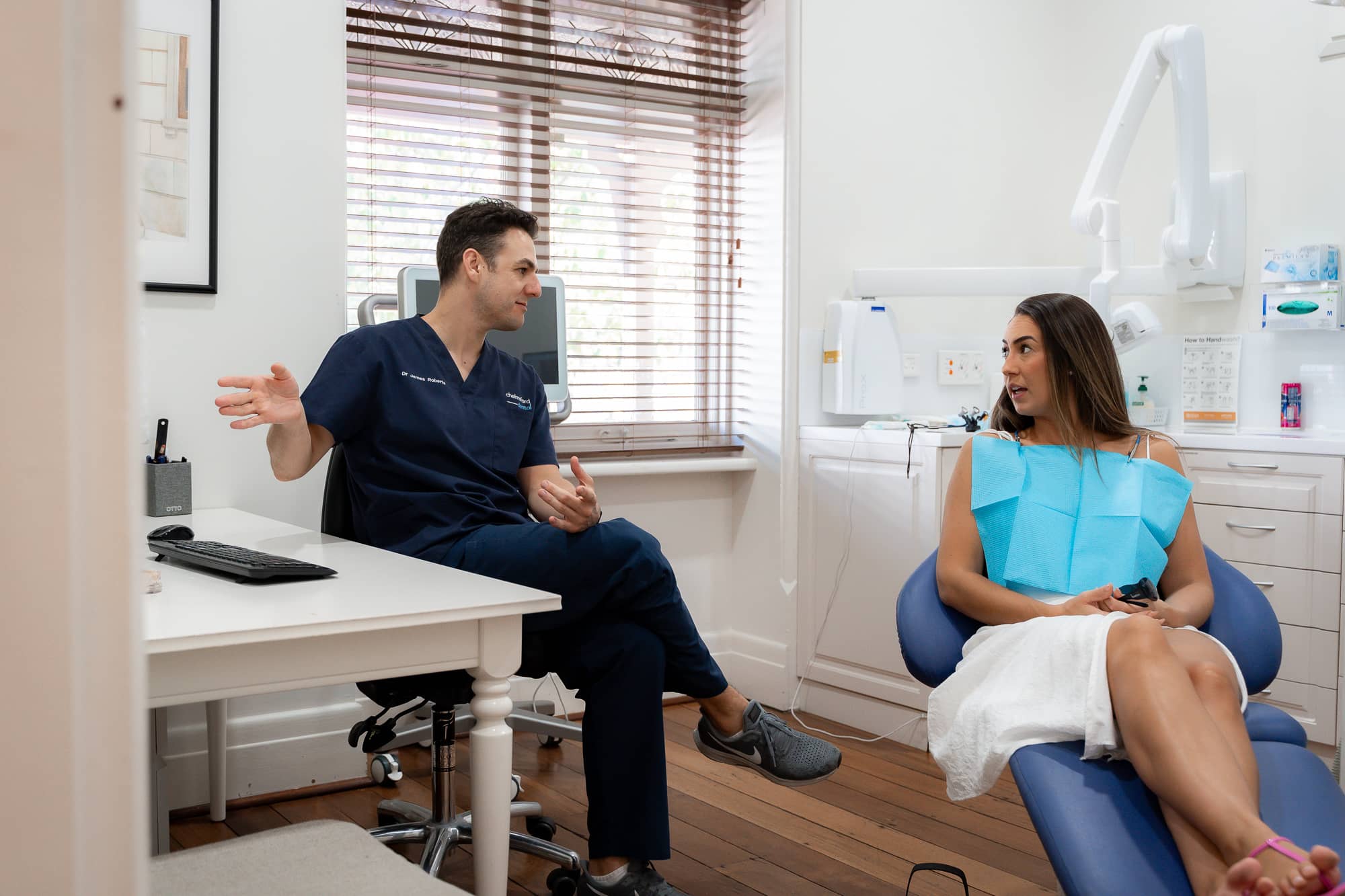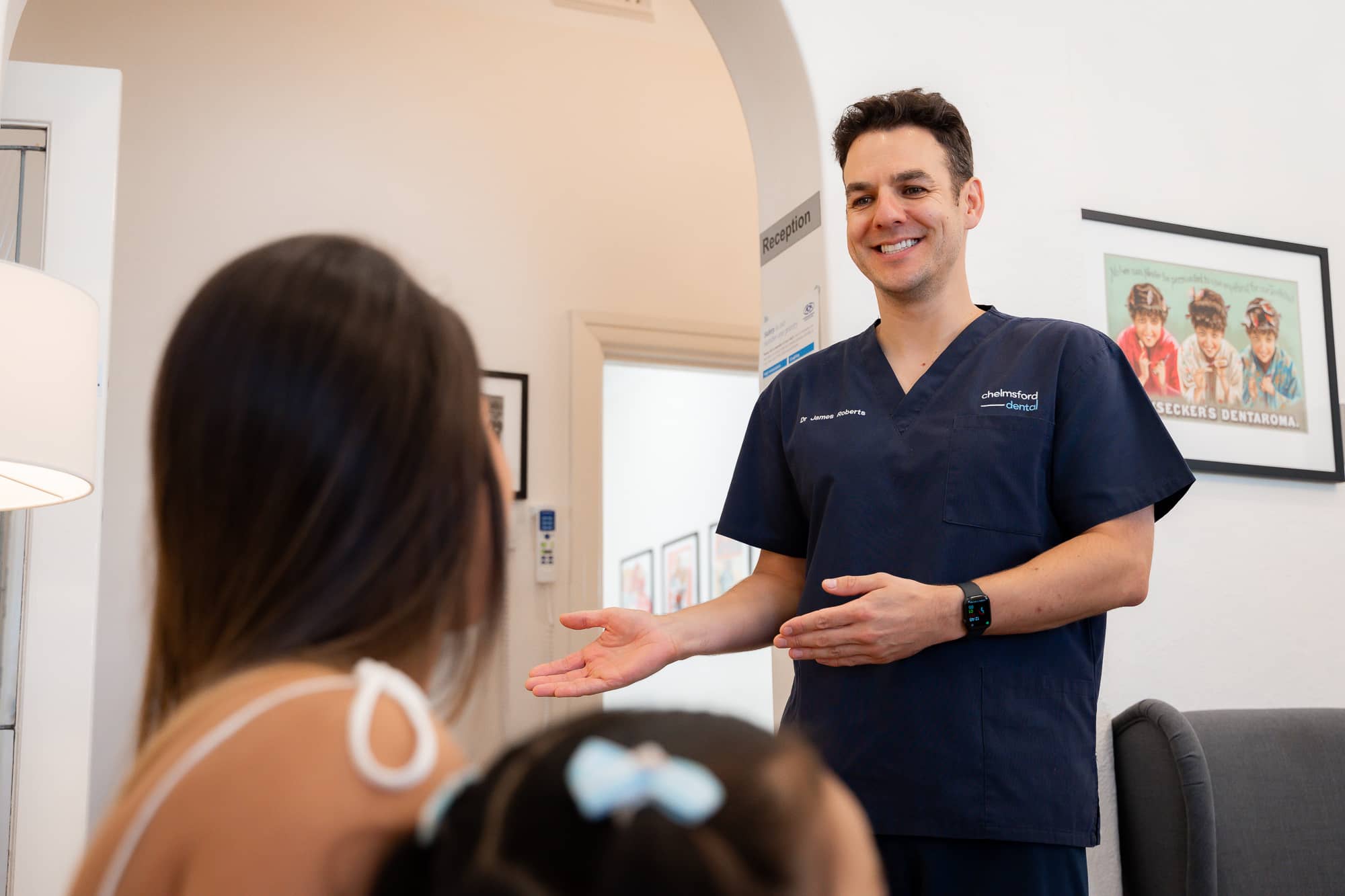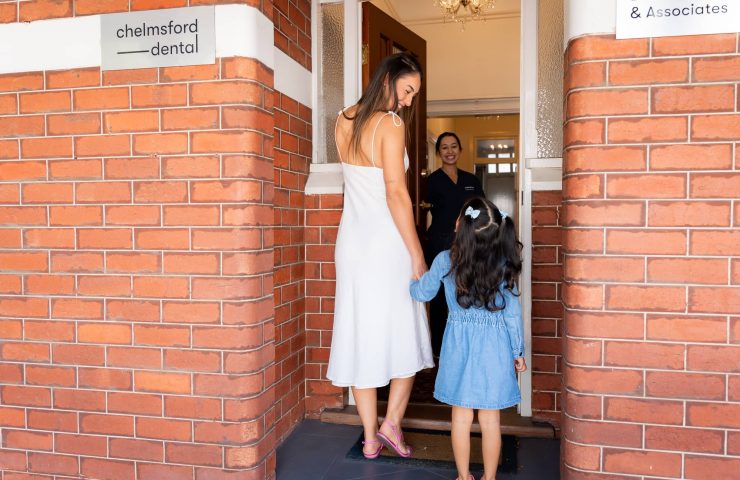Sleep apnoea is a serious sleep disorder where breathing repeatedly stops and starts during sleep. It can contribute to oral health issues, including dry mouth, which increases the risk of tooth decay and gum disease. Dental professionals can play a key role in diagnosing and managing

Our expert dentists can help recommend oral appliances to effectively treat your sleep apnoea.
A thorough diagnosis from a sleep specialist and a dentist is essential to determine the most appropriate treatment.
Obstructive Sleep Apnoea (OSA) occurs when their is a blockage in your airway while you sleep. This causes a drop of in your oxygen levels. While central sleep apnoea (CSA) occurs when the brain incorrectly transmits signals to the your muscles such as lungs to control breathing.

It is crucial to consult your GP to avoid complications from obstructive sleep apnoea. A visit to the dentist may be required as treatment measures may include the use of snoring appliances.

Snoring appliances are custom-made dental splints used to alter the position of the tongue, soft palate, and the jaw. This helps mitigate snoring and symptoms of mild to moderate Obstructive Sleep Apnoea.
Snoring appliances are sometimes referred to as Mandibular Advancement Devices (MAD) or Mandibular Repositioning Appliances (MAS). These devices resemble a mouthguard and are placed in the mouth prior to sleeping.
Generally, snoring devices are recommended for people with Obstructive Sleep Apnoea triggered by narrow airway passages or if they have a tongue that relaxes back into the airway during sleep.
Our staff are more than happy to answer any questions or queries you may have.
Snoring appliances work by pushing the lower jaw forward to help nudge the airway open and clear the obstruction.
When breathing passages are open, the vibrations stop and snoring ends. Along with preventing snoring, snoring appliances can help improve emotional stability, concentration, and alertness.
As with many forms of treatment, each individual will respond differently to snoring appliances. For mild to moderate sleep apnoea cases, snoring appliances usually offer a high rate of success.
Additionally, individuals who are not overweight and experience an improvement in sleep apnoea when lying on their side compared to their back usually experience a high success rate with snoring appliances.
Along with being portable, snoring appliances offer a non-invasive form of treatment. Further, they often eliminate the need for surgery. Since they are easy to use and can be transported easily if you travel, users find it easy to comply with treatment.
If a snoring appliance is used as advised, it is unlikely to result in adverse effects. However, the initial use of snoring appliances can cause a bit of discomfort at the back of the jaw since they work by pushing the jaw forward.
This discomfort usually dissipates by morning and ends entirely once an individual has used the snoring appliance for some time.
Although most people just think of teeth when it comes to dentistry, our team of experts is here to help when it comes to issues with sleep apnoea as well.
We enjoy helping our patients find solutions to snoring troubles and obstructive sleep apnoea. Our goal at Chelmsford Dental is to determine the best route of treatment for your situation and get you on the way to a more restful, safe night of sleep.
Please reach out to us today if you have any questions or would like to set up a consultation.